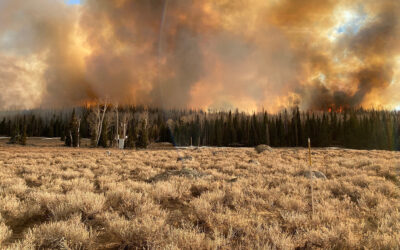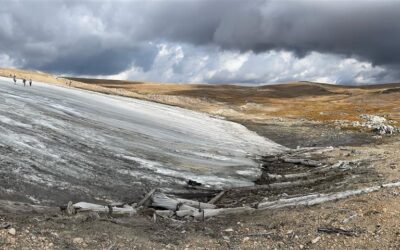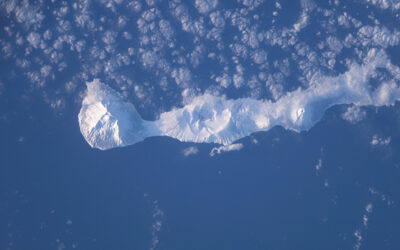DRI’s Christine Albano co-authored a new study that examines how a warming climate is creating an atmosphere more prone to extreme weather. This “hydroclimate whiplash” is evident in California’s recent weather, with winters filled with repeated atmospheric river storms driving the plant growth that the dry summers then parched, providing plentiful fuel for explosive wildfires.
Posts by Elyse DeFranco
What We Know About Wildfire Risk and Prevention
DRI scientists conduct a wide range of research on wildfire related topics to help policymakers, fire managers, and community members navigate challenges to public safety and health. In this Q&A, a selection of our scientists answer some of the most pressing questions about the environmental conditions that lead to the most devastating blazes and offer previews into some of their most relevant research.
Volunteer Scientists Validate Rain and Snow Estimates
DRI scientists Guo Yu, Meghan Collins, Monica Arienzo, and Anne Heggli co-authored a new study that examines how Mountain Rain or Snow is helping improve weather forecasting models. The citizen science project collects observations of precipitation from community volunteers across the country to further scientific understanding of the environmental variables impacting where precipitation falls as either rain or snow. This information is critical for informing avalanche forecasting, road safety, and water resources management.
DRI Internships Offer Nevada Students Experience with Research and Insight into STEM Careers
This summer and fall, DRI brought twelve students from Nevada’s community and state colleges to the Las Vegas and Reno campuses for a paid, immersive research experience. Over the course of the 16-week program, students worked under the mentorship of DRI faculty members to learn about the process of using scientific research to solve real-world problems. This unique internship program welcomes all students, not only those pursuing majors in science, who are in their first or second year of enrollment at local state and community colleges.
Ice Patches on Beartooth Plateau Reveal How Ancient Landscape Differed From Today’s
DRI scientists Joe McConnell and Nathan Chellman co-authored a new study that examines a 6,000-year-old forest preserved in a Rocky Mountain ice patch. The research, which was led by the USGS and Montana State University, used the fossil wood to develop tree-ring based temperature estimates of the mid-Holocene period. The study can provide insight into the future elevational movement of forests under climate change, the scientists say.
Reno-Sparks Heat Mapping Project Releases Detailed Urban Heat Data
The summer 2024 data collection effort provides community members, legislators, and scientists with detailed maps of the region’s urban heat island. The campaign took place on August 10th, a clear and hot day for our region. The measurements and maps produced from the campaign reveal a great deal of variability across the nearly 200 square miles of our study area and between the early morning, mid-afternoon, and early evening time periods of the study.
Lead Pollution Likely Caused Widespread IQ Declines in Ancient Rome, New Study Finds
Lead exposure is responsible for a range of human health impacts, with even relatively low levels impacting the cognitive development of children. DRI scientists have previously used atmospheric pollution records preserved in Arctic ice cores to identify periods of lead pollution throughout the Roman Empire, and now new research expands on this finding to identify how this pollution may have affected the European population.
New Research Solves 200 Year Volcanic Mystery
DRI scientists Joe McConnell and Nathan Chellman are co-authors on a new study that sheds light on a historical mystery that has plagued historians and scientists alike for nearly two centuries. Using Arctic ice core records, the team identified the volcano responsible for an enormous eruption in 1831 that caused global cooling of around 1°C, leading to crop failures and famines around the world.
Regional, Racial, and Economic Disparities in Cancer Risk from Air Pollution Exposure Persist, But Improving, New Research Suggests
Researchers from DRI and UNR teamed up for this new study, published October in Environmental Science & Technology. Using sociodemographic data from the U.S. Census Bureau and public health and air pollution information from the EPA between 2011 and 2019, the study identified higher estimated cancer risk tied to air toxics in urban communities, those with lower incomes, and those with higher proportions of racial minorities.
Meet Patrick Hurbain
Patrick Hurbain, Ph.D., is an environmental epidemiologist working with Judy Chow, John Watson, and Xiaoliang Wang in the Environmental Analysis Facility. In the following interview, Hurbain discusses how his childhood in Stead influenced his career trajectory, his new study published in Environmental Science & Technology, and his hopes for bringing the chili cook-off back to DRI.









